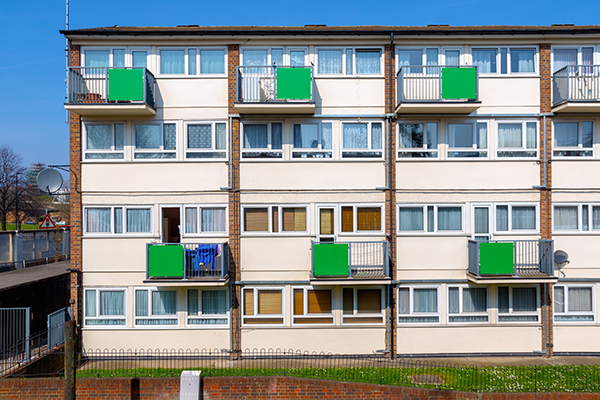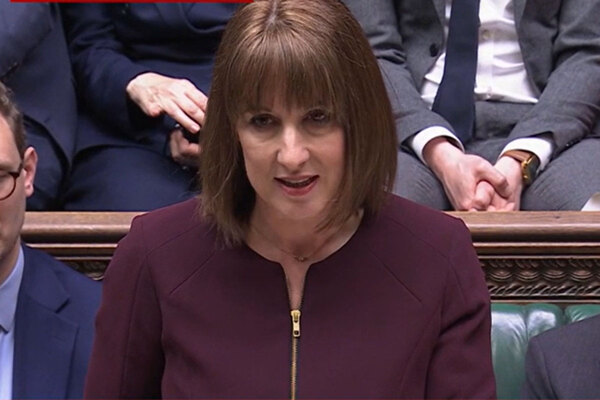Sector welcomes green paper but calls for more ‘ambitious’ investment
Councils and housing associations have broadly welcomed measures in the Social Housing Green Paper, but said more ambitious investment in housebuilding is needed to achieve the government’s aims.
A full copy of the green paper has not yet been released, but ministers trailed a number of its proposals ahead of publication later today.
These include league tables for housing associations, “sharper teeth” for the social housing regulator and the dropping of the local authority high-value asset levy.
The government said the green paper, which is out for consultation until November, is a “new deal” for those living in social housing.
David Orr, chief executive of the National Housing Federation, backed the green paper’s focus on improving services for residents, but added the consultation must address concerns about the shortage of affordable homes and welfare reforms.
He said: “Without significant new investment in the building of more social housing, it is very hard to see how it can be a safety net and springboard for all the people who desperately need it.
“Our ambition for the green paper is that it sets a course for a future where everyone can access a quality home they can afford. To do that we need to build 90,000 new social rent homes every year.”
Gavin Smart, deputy chief executive of the Chartered Institute of Housing, welcomed proposals to strengthen the Regulator of Social Housing and tackle stigmatisation.
“The green paper rightly recognises the importance of new supply but we are concerned that the plans for new affordable homes are not ambitious enough,” he added.
“This is why we have called on government to rebalance the £53bn funding for housing so that affordable housing gets a fairer share than the 21% it has now.
“This is essential if we are to make sure that everyone has a decent, affordable place to call home.”
Judith Blake, housing spokesperson for the Local Government Association and leader of Leeds City Council, said: “This green paper is a step towards delivering more social homes but it is only a small step compared with the huge and immediate need for more genuinely affordable homes.
“There is a desperate need to reverse the decline in council housing over the past few decades. The loss of social housing means that we are spending more and more on housing benefit to supplement expensive rents instead of investing in genuinely affordable homes.”
She called on ministers to “go beyond the limited measures announced so far” by scrapping the borrowing cap for council Housing Revenue Accounts.
Paul Hackett, chair of the G15 group of London housing associations and chief executive of Optivo, said: “The green paper is a step forward for social housing tenants but higher grant levels and bigger funding programmes will be required in the long term if we’re going to tackle the housing crisis.”
John Bibby, chief executive of the Association of Retained Council Housing, praised the “general thrust” of announcements made ahead of the green paper’s publication.
He added: “We are disappointed that there does not appear to be a commitment to any new monies to help substantially increase the supply of social housing but welcome the promise to consult on greater flexibilities in the use of RTB [Right to Buy] receipts – although this is long overdue having been first announced on 29 March this year.”
Sinéad Butters, chair of Placeshapers and chief executive of Aspire, said: “We look forward to discussing these proposals with ministers, but we are concerned that one measure highlighted –league tables – won’t actually be a useful measure quality, would create false competition and risk distracting us from getting on with the vital job of building homes and communities.”
And Jenny Osbourne, chief executive of tenant engagement body Tpas, said: “We know from our landlord and tenant members that a renewed focus on empowerment, a more respected tenant voice and raising the standards, quality and safety on current homes will be welcomed by all.
“However, we also note so far there is little evidence of additional social homes investment within the headlines of the green paper which is frustrating.
“The lack of link up to the issue of welfare reform, so clearly articulated at the tenant roadshows as a major concern, is also disappointing and misses a fundamental problem.”
Update: at 14.57pm, 14/08/18 comments from Sinéad Butters and Jenny Osbourne were added to the story.
KEY PROPOSALS IN THE SOCIAL HOUSING GREEN PAPER
- New 'league tables' of housing providers based on key performance indicators, surrounding services such as repairs and neighbourhood management. This could be linked to housing grant.
- Consideration to scrapping of the current 'serious detriment' test, to allow 'Ofsted-style' tougher consumer regulation
- New home ownership options such as allowing tenants to buy as little as 1% of their property each year through shared ownership. This would only apply to new shared ownership purchases.
- Ditching of plans to force social landlords to offer fixed term tenancies rather than lifetime tenancies in social housing
- Ditching of plans to force councils to sell off their most valuable social housing when it becomes vacant
- The potential introduction a new stock transfer programme from councils to 'community-led' housing associations
- The return of guaranteed debt funding to help the development of affordable homes, and longer term 'strategic partnerships' for developing housing associations












